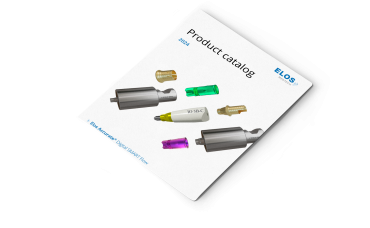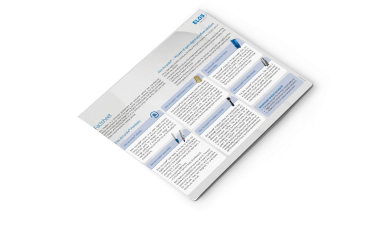In the first article in Elos Medtech’s “In China for China” series, “China Offers a Lucrative and Growing Market for Dental Implant Manufacturers,” we took a closer look at the expanding dental implant market in China and attitudes toward public versus private providers.
In our estimation, it’s crucial for dental implant manufacturers to give priority to public hospitals in their planning activities, especially considering that public hospitals are estimated to win an even greater share of the market from private clinics in the future.
Implant brands are putting in an effort to succeed in public hospitals due to their strong influence, academic status, and better gross profit margin. However, as new policies come into play in China, the public sector will continue to become more difficult for foreign brands to access, posing a challenge to which brands should be ready to adapt.
A new policy is positioned to incentivize the protection, development and localization of domestic brands in the dental implant industry in China. In our second article, “5 Key Things to Know About Regulatory Changes in the Chinese Dental Implant Market,” we reviewed the key takeaways implant manufacturers need to know about the policy.
Being considered a domestic brand will be vital for those wanting to enter the Chinese market for the first time and those already doing business there. In this, our fourth and final article in the series, we’ll highlight four steps your brand can take to work toward meeting the requirements of becoming a domestic brand in China.
Step 1: Understand the requirements to meet domestic status.
In our third article, “How to Become a Domestic Brand in the Chinese Dental Implant Market,” we looked at the whens, wheres, and hows of the new requirements. Here’s a recap of what you need to know:
For Class I medical devices:
- The Legal Manufacturer can outsource manufacturing up to the component / semi-product stage to the Seller (Class I)/Entrusted partner (Class III) but cannot outsource the complete manufacturing.
- The Legal Manufacturer and registrant of the products must perform the final manufacturing stages (packaging, labeling, and an additional procedure like cleaning) in China to be considered a “domestic” selling partner.
For Class III medical devices:
- The Legal Manufacturer can perform manufacturing up to the component / semi-product stage by an Entrusted Partner.
- The Legal Manufacturer and registrant of products can either perform the complete manufacturing process themselves or outsource the entire process (including the final stages) to an Entrusted Partner located in China.
For both Class I and Class III:
- The Legal Manufacturer needs to obtain a business license and first apply for and attain product registration before applying for a Medical Device Production License.
- The Legal Manufacturer must also comply with Good Manufacturing Practice (GMP) regulations.
For firms wanting to establish a plant in China and handle all production stages on their own:
- The Legal Manufacturer must submit all documentation to the National Medical Products Administration (NMPA) during the establishment of the production plant, including the rights/status of the core-value technical files.
- Future policy risks and unknowns can come into play later that may require additional adaptations in processes, licensing and/or equipment.
For those firms that want to outsource one or more production stages:
- The Legal Manufacturer only needs to provide the files for the stages being outsourced to the Entrusted Partner / Contracted Manufacturer, but not to the NMP
Step 2. Evaluate your current position and options in China.
Since for both Class I and Class III devices, the Legal Manufacturer must be located in China, your firm should evaluate its current operations in China to determine the best options.
A part of your evaluation process could include consideration of the following questions (and more):
- Do you have a product registration in China?
- Do you already have manufacturing facilities located in China?
- Can your facilities be adapted to meet growing requirements?
- Does your firm have the internal expertise and infrastructure to support any new China business initiatives?
- Does your firm have a plan yet for addressing the new regulatory requirements, handling the paperwork, and obtaining approvals?
If your answer is “no” to any of these questions, it’s likely your firm should look to the help of an Entrusted Partner to handle the process, which can decrease the time to market from years to just a few months.
Step 3. Your time to market: understand the substantial time and effort required.
Firms must carefully consider expected timelines when evaluating how long it will take to realize the potential of any investments they plan to make.
The setup of the final production stages for Class I devices is more straightforward than for Class III devices, and dental implant manufacturers can choose to establish Class I final production stages in China including cleaning (which doesn't require a clean room), labeling, and packaging. However, for Class III devices, the setup of the final production stages is much more complicated, and manufacturers need to have a clean room.
When establishing a new plant, additional time is required to get a production license (including testing equipment, self-checking, and on-site inspection). If a firm decides not to engage with an Entrusted Partner to manufacture but instead decides to build a plant by itself and get the approved registrations needed, the expected time is at least 2-4 years to become a domestic brand for Class I or III device manufacturing.
Step 4. Consider whether you’ll go it alone or work with an Entrusted Partner.
It takes considerably less time to find an Entrusted Partner to handle the process than to set up a licensed organization and plant in China.
Collaborating with an Entrusted Partner can shave years off the process and bring your time investment down to a matter of months
If you have a plant in China, you can benefit from working with an Entrusted Partner for some or all of your production activities. There is the possibility of adding the critical final production stage manufacturing phase for Class III medical devices, thereby becoming a domestic brand. Full transparency of your production files for the stages being outsourced goes to the Entrusted Partner only (not to the NMPA), and you retain the status of being the Legal Manufacturer.
Additionally, safety and reliability can be offered by partners like Elos Medtech. At our manufacturing site in Tianjin, established in 2010, we can act as entrusted partner of both Class I and Class III contract manufacturing.
Conclusion It's vital that foreign implant makers start taking steps now to adapt to the regulations being enacted in the Chinese dental implant market. This holds true for firms that are new to the Chinese market and those already doing business there, since it will be crucial to have access to the most lucrative Chinese implant sector: the government-controlled public hospitals.
If your firm needs guidance, Elos Medtech is ready to help you solidify the best plans for your success and make the complicated process easier, faster, and more efficient.
Disclaimer: The information contained herein is presented in good faith and is, to the best of our knowledge and belief, true and reliable. It is offered solely for your consideration and is subject to change without prior and further notice unless otherwise required by law or agreed upon in writing. There is no warranty being extended as to its accuracy, completeness, correctness, non-infringement, merchantability or fitness for a particular purpose. All rights reserved.



